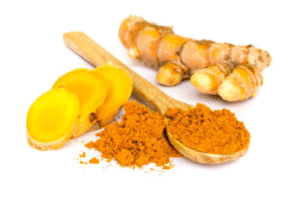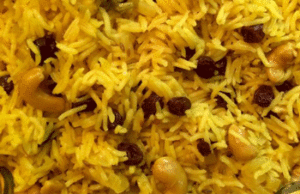Last month, several of our Brain Tuners told us that Turmeric is an amazing spice we should be including in our diets (and our kitchen cupboards!)
Turmeric has traditionally been used in Ayurvedic and Chinese medicine to treat inflammatory conditions, skin diseases, wounds, digestive ailments and liver conditions. Read the full article
In 2019, FutureHealth, Cambridge UK published their Definitive Guide to Turmeric.
Dr Lamont has researched current clinical trials relating to brain health (some of which are on-going) and found that although more research is needed in most areas, some promising results have been recorded, including assisting patients with Alzheimer’s Disease.
‘A growing body of evidence indicates [because of] … the various effects of curcumin, such as decreased Beta-amyloid plaques, delayed degradation of neurons, metal-chelation, anti-inflammatory, antioxidant and decreased microglia formation, the overall memory in patients with AD has improved.’ Shrikant Mishra, Department of Neurology, VA/USC Read the research
So what is turmeric?
It’s a perennial plant of the ginger family, native to southwest India and it is commonly consumed in powder form and used as a spice.
To make turmeric powder (the spice commonly used in Indian and Pakistani curry cuisine), the roots of the plant are boiled for 30-45 minutes, dried in ovens and then ground into a deep orange-yellow powder.It can also be used for dyeing cloth.
Read more about the positive health benefits here
Curcumin is the active substance in turmeric believed to be the source of many of its health benefits. Curcumin is also responsible for turmeric’s distinctly earthy, slightly bitter and peppery flavor.
Nutritional breakdown of turmeric
One tablespoon of turmeric powder contains 29 calories, 0.9 grams of protein, 0.3 grams of fat and 6.3 grams of carbohydrates (including 2 grams of fiber and 0.3 grams of sugar).
That same 1 tablespoon serving provides 26% of your daily manganese needs, 16% of iron, 5% of potassium and 3% of vitamin C.
Here’s a delicious recipe with turmeric sent to us by Lynette:
Basmati Rice with Cashews, Raisins, and Turmeric
Ingredients:
• 2 Tbsp. coconut oil
• 1½ cups basmati rice
• 2 cups coconut milk
• 2 cups. chicken or vegetable stock
• 4 tsp. ground turmeric
• 3 Tbsp. ground cumin
• 3 Tbsp. ground coriander
• 1 pinch red pepper flakes (crushed)
• 1 tsp. salt
• 1 bay leaf
• ½ cup raisins
• ¾ cup cashew (halves)
Procedure:
Heat oil in a large pot over medium-high heat. Add rice and cook for 2 minutes. Stir in the remaining ingredients and bring to a boil. Reduce heat to low and cover tightly, stirring once to ensure prevent sticking. Cook until rice is tender – about 20 minutes.
Potential health risks of consuming turmeric
Using turmeric as a spice in food is considered safe; however, supplements are not regulated and may or may not contain what they claim.
Long-term large doses of turmeric may cause upset stomach and ulcers in extreme cases. Anyone with bile passage obstructions or gallstones should talk to their doctor before taking turmeric. Turmeric should not be taken with drugs that work to reduce stomach acid.
Turmeric may lower blood sugar levels. If you have diabetes, talk to your doctor before taking turmeric supplements because they may increase your risk of hypoglycemia.
Pregnant and breastfeeding women should not take turmeric supplements.
Because turmeric may act as a blood thinner, it should not be taken in supplement form at least 2 weeks before surgery or combined with blood-thinning medications.





My doctor tells me to take Tumeric but I am taking Losec and wonder if I can take the Tumric with this
Hi I have been taking Tumeric for approx 30 years I believe it has helped but sadly I had a stroke 4 years ago.
I have lost my memory, I have been to your course and many other health professionals but cant get it back.
I am not putting the blame for the stroke on Tumeric as I think it is wonerful but it doesnt seem to help my brain function but I am still taking it
Hello there
This is one for your Doctor, next time you are visiting. Trials of Turmeric are on-going and I would take careful note of any effects your Doctor may know about … In the meantime, keep up those brain challenges!
You are doing all the right things, though, and you will recall from the course that growing NEW brain connections is the best way to overcome the damage that has been done by having a stroke. Don’t give up! Every time you try to do something that is hard for your brain to do, you are making progress. (Even if it doesn’t feel like it at times.) You can’t ‘lose’ your memory – it is the connections to the information stored in your cortex that need to have new neural pathways established. So keep those brain connections growing anyway you can!
I assume that the recipe is for 4 people. It would appear that in one meal a teaspoonful of turmeric powder which contains some poorly bioavailable curcumin is not going to have much effect. Much more info on dosage is needed.